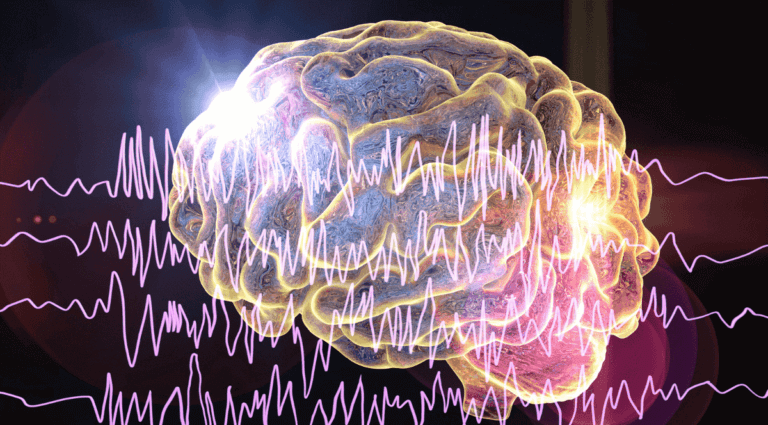“Your emotions make you human. Even the unpleasant ones have a purpose. Don’t lock them away. If you ignore them, they just get louder and angrier.”
― Sabaa Tahir, A Torch Against the Night
Emotions are a part of one’s life that neither should be ignored nor compressed under other “worthy/important” emotions. One should embrace them and try to understand what causes them to affect you the way they are.
The cause of emotions may be difficult to tackle, but the process through which they emerge might be a bit easier to explain.
Brain waves – these waves are one of the sole reasons for what you are feeling right now. Grieve, anxiety, pain, or affection all result from some electrochemical reactions occurring in your brain, even right now. Control one’s emotions might sound like a troubling job; however, it can be more accessible.
Here we will discuss the little nuances of brain waves and how they can control your mood and emotions. Read on to find out more about it.
What are Brain Waves?
The human brain is one of the most powerful organs present in our body. It can generate up to 10 watts of electrical power at once, but it is also endured the ability to perform different body functions. These functions are essential for one’s well-being and general health.
The energy produced by our brain results from billions of interconnected nerve cells; these cells generate energy in electric signals, also known as brain electrical activity, and another name for that would be brain waves.
Types of Brain Waves
All the electrical waves produced by the brain are synchronized in a rhythm-like form. Each is an indication of different emotions that a human body is exhibiting.
Activation of a specific part of our brain causes the release of one of these brain waves, allowing you to feel different emotions and feelings.

Here are five of those brain waves that are one of the reasons for what you are feeling right now.
· Theta Brain Waves
Theta waves (4-7 Hz) are the brain waves that control your body in an “auto-pilot” mode. They are primarily released while sleeping; however, one can experience them when they are awake—activities like running, taking a shower, or ironing your clothes.
The waves kick in when your body does the activity independently and doesn’t require many activations. They allow a person to think in a smooth flow. That is why the best ideas are the ones during the release of these waves.
These waves indicate a mentally relaxed state of mind. That is why you can induce them through meditation or solving complex puzzles. The secretion of GABA inhibits the body’s state to get excited, leaving you in relaxed mode, ready for the theta waves to flow in.
· Alpha Brain Waves
Alpha brain waves (8-12 Hz) are released when a person is done with their complex activity. For example, when you’re studying or attending a conference, you leave your seat and take a moment to relax. The release of alpha waves provides that state.
At this resting state, your brain is shifting gears and taking notes of what to do next or what the human body needs to get done.
GABA increases the non-arousal state of mind and allows it to relax. If you take a moment and get in a few deep breaths, your brain will start to release alpha waves in a significant amount, and you will be able to feel a difference within yourself.
· Beta Brain Waves
Beta brain waves (13-38 Hz) are highly aroused waves released when someone is intellectually activated.
When a person is highly indulging in his activity and focusing on the right decision to be taken at that exact time, these electrical activities are produced faster than ever. You activate these waves by getting engaged in your current work.
· Delta Brain Waves
Delta waves (1-3 Hz) are the ones that a person experiences while sleeping. The lowest frequencies of the waves have been recorded while a person is sleeping without any dreams.
Gabapentin help releases these brain waves, which provide the highest form of relaxation to the body. That is why the body restores and heals itself the best during a long night’s sleep.
If you think that restlessness is causing you to produce disturbing emotions, contact us for your free consultation.
· Gamma Brain Waves
Gamma brain waves (39-42 Hz) help your brain focus all of its concentration on a specific matter. It can be a problem-solving puzzle or something that needs a person’s entire perception and focus.
Research has shown that music can help stimulate gamma waves, resulting in attention to detail, flexibility in thoughts, and creativeness. That is why most students tend to study better with some music playing in the background.
How to Measure Brain Waves?
Modern technology has improved so far that it can collect data regarding your brain’s electrical activity. Doctors use an encephalogram (EEG) to detect any abnormalities in brain functioning. In other words, it detects the functioning of the brain waves by recording their electrical signals.
If you want, you can also check your brain waves for yourself by using Biofeedback Headsets. Unlike proper encephalography (EEG), which uses small metal discs consisting of electrodes to measure the electrical activity of your brain.
These headsets have a built-in sensor to measure brain activity. That is why you might notice a significant difference in the results provided by both instruments.
However, if you want efficient results, it is better to try a professional hand. Contact us and let us treat your emotions and heal your soul with therapies that have no side effects. We have experts and consultants that can bring positivity to your life through their years of experience.
Can Music or Sound Affect Brain Waves?
A human brain can change the frequency of its electrical signals by getting stimulated through external energy and stimulus, in this case, sound or music.
Different beats can stimulate the production of different frequency waves. If you listen to up solid beat music, the brain waves will change their frequency to the beta or gamma brain waves rate. In contrast, on the other hand, lower beats stimulate the production of waves like alpha.
That’s how you can change your mood by switching through your brain waves. A great way to do that is music or sound therapy.
We provide you with professional instructors who help you through your healing process using music therapy. In addition to that, different workshops are set up weekly so that it all fits right into your schedule.
Still not sure?
Connect with us today and discuss your issues.


